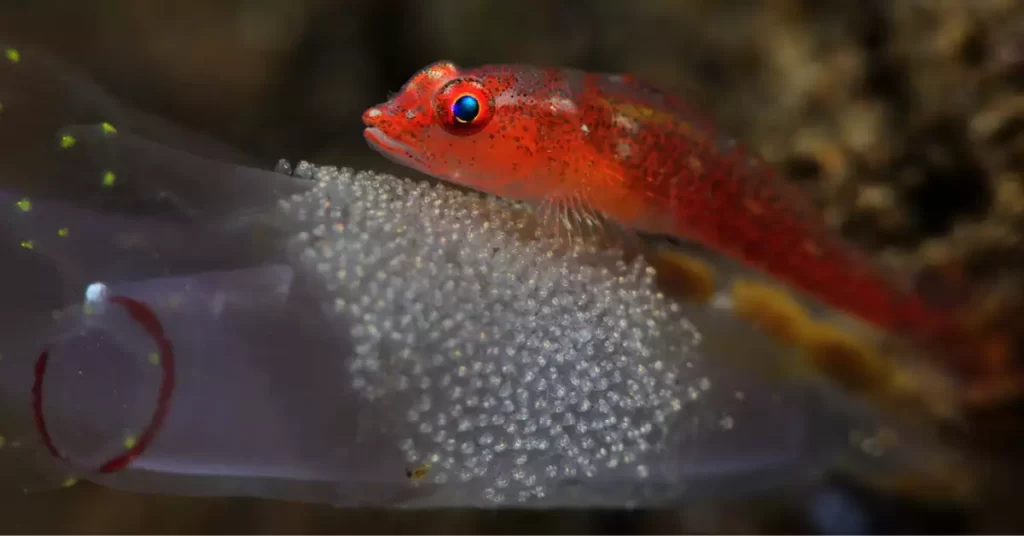Aquarium enthusiasts often come across unexpected events in their tanks, which may lead to various questions.
One such question is whether snails consume fish eggs or not. In this article, we will delve into the behavior of snails, the reasons behind their interest in fish eggs, and the implications of such behavior.
So, let’s embark on this fascinating journey to explore the world of snails and fish eggs.
Understanding Snails: Types and Habitats
Before we delve into the main topic, it is essential to understand the different types of snails that may be found in an aquarium. Snails are classified into two main categories:
Freshwater Snails
These snails are native to freshwater habitats such as rivers, ponds, and lakes. Some common freshwater snails that may be found in aquariums include:
- Apple Snails
- Mystery Snails
- Nerite Snails
- Malaysian Trumpet Snails
- Ramshorn Snails
Saltwater Snails
Saltwater snails are native to marine environments like oceans and seas. Some popular saltwater snails that may be found in aquariums include:
- Astrea Snails
- Turbo Snails
- Nassarius Snails
- Cerith Snails
- Bumblebee Snails
Fish Eggs: A Nutritious Meal
Fish eggs are a rich source of nutrients, including proteins, fats, vitamins, and minerals. As a result, they can be a tempting snack for various aquatic organisms, including snails.
While not all snails are known to consume fish eggs, certain species have been observed indulging in this behavior.
Reasons Why Snails Eat Fish Eggs
There are a few reasons why snails might consume fish eggs in an aquarium:
Scarcity of Food
In cases where the snails do not have access to an adequate food source, they may turn to fish eggs as an alternative option.
Nutritional Needs
Fish eggs can provide a significant source of nutrients for snails, especially if their regular diet does not fulfill their nutritional requirements.
Opportunistic Behavior
Some snail species are opportunistic feeders and will consume fish eggs if they come across them.
How to Protect Fish Eggs from Snails
If you want to prevent snails from consuming fish eggs in your aquarium, here are some strategies to consider:
- Isolate the fish eggs by placing them in a separate breeding tank or using a breeding box.
- Use a snail trap to remove snails from the aquarium.
- Manually remove snails from the tank using a net or tweezers.
- Introduce natural predators, such as loaches or pufferfish, to control the snail population.

The Impact of Snails Eating Fish Eggs
Snails eating fish eggs can have several consequences for your aquarium, including:
- Reduced fish population due to fewer eggs hatching.
- Imbalance in the aquarium ecosystem.
- Increased competition for resources among the remaining fish.
How to Prevent Snails from Overpopulating Your Aquarium
Snails can quickly overpopulate your aquarium, leading to several issues such as water pollution and unsightly appearance. Here are some ways to prevent snails from overpopulating:
- Limit the amount of food you feed your fish to avoid overfeeding, which can lead to an increase in the snail population.
- Avoid introducing new plants, rocks, or other materials into your aquarium without thoroughly cleaning them first. Snails can hitchhike into your tank on these materials.
- Introduce natural predators to control the snail population.
- Regularly remove snails manually or use a snail trap.
Pros and Cons of Having Snails in Your Aquarium
Snails can have both advantages and disadvantages when kept in an aquarium. Here are some pros and cons to consider:
Pros
- Snails are beneficial in keeping the aquarium clean by consuming excess food and debris.
- They can also help control algae growth, improving the water quality in the tank.
- Snails can serve as a food source for certain fish species.
Cons
- Snails can reproduce quickly, leading to overpopulation and water pollution.
- Some snail species can damage live plants in the aquarium.
- Snails can consume fish eggs, leading to a reduction in the fish population.
Snail-Friendly Alternatives for Aquariums
If you want to avoid keeping snails in your aquarium but still want the benefits they provide, here are some snail-friendly alternatives:
- Use a gravel vacuum or filter to clean the tank regularly.
- Introduce bottom-dwelling fish that can help keep the aquarium clean, such as corydoras or loaches.
- Use natural algae control methods, such as reducing light exposure and avoiding overfeeding.
- Consider using a UV sterilizer to help control the growth of harmful microorganisms in the water.
Summary: Snails and Fish Eggs
In summary, snails can consume fish eggs in an aquarium due to various reasons such as nutritional needs, scarcity of food, and opportunistic behavior.
To protect fish eggs from snails, you can isolate them, use a snail trap, manually remove snails, or introduce natural predators.
Snails can have both advantages and disadvantages in an aquarium, so it’s essential to consider these factors before adding them to your tank.
Alternatively, you can use snail-friendly alternatives to keep your aquarium clean.
FAQs
Which snail species are more likely to eat fish eggs?
Some freshwater snail species, such as apple snails and mystery snails, are more likely to consume fish eggs.
Can snails damage live plants in an aquarium?
Yes, some snail species can damage live plants by consuming them.
Can snails reproduce asexually?
Yes, some snail species can reproduce asexually, leading to a rapid increase in population.
In conclusion, snails can be both beneficial and problematic in an aquarium.
Understanding their behavior and needs can help you create a thriving aquatic environment while avoiding potential issues like the consumption of fish eggs.
By implementing proper management strategies, you can ensure the health and well-being of both your fish and snails in your aquarium.